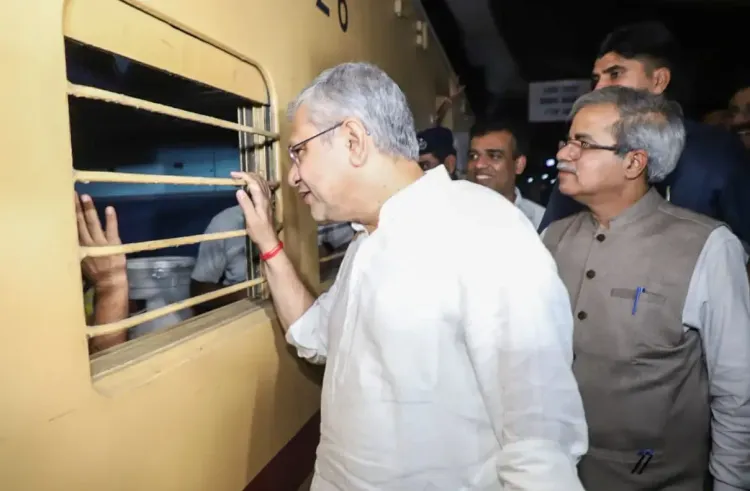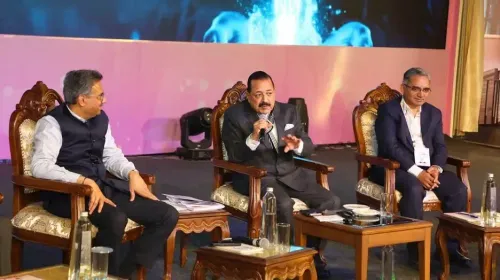How is Indian Railways Managing Passenger Rush with Multi-Level War Rooms?

Synopsis
Key Takeaways
- Indian Railways has established multi-level war rooms for effective passenger management.
- Over 10,700 trains are currently operational.
- Additional 3,000 trains are on standby to manage sudden passenger surges.
- Expansion of train services in Bihar to enhance travel options.
- Real-time monitoring of passenger grievances is now possible.
New Delhi, Oct 23 (NationPress) Union Railway Minister Ashwini Vaishnaw announced on Wednesday that Indian Railways has launched dedicated “war rooms” at divisional, zonal, and board levels to effectively tackle significant passenger congestion during the festive season.
The Minister highlighted that these war rooms facilitate real-time decision-making to guarantee smooth passenger transit. To date, 10,700 trains have been operated through IRCTC, with nearly 3,000 additional trains on standby to meet sudden surges in passenger demands.
Vaishnaw provided recent instances demonstrating the system's efficiency in promptly managing congestion.
For instance, on October 18, the Udhna railway station in Surat faced an overwhelming passenger load, which was quickly alleviated by deploying extra trains from nearby stations.
A similar congestion situation in Ambala was addressed by increasing train numbers in and around Jalandhar.
The Minister also shared that the number of destinations in Bihar has expanded to 18 this year, up from seven last year, to cater to the heightened travel demand during the festive season.
A central command war room has been established at Rail Bhavan in New Delhi to oversee and coordinate the entire network, enabling real-time monitoring of congestion, passenger complaints, and on-ground incidents.
According to Vaishnaw, over 80 operational war rooms are now active within the Indian Railways system, making it a robust mechanism for timely interventions and an enhanced passenger experience.
Earlier, Indian Railways declared its plan to run 1,500 special trains over the next five days, with an average of 300 specials per day, to accommodate the influx of passengers ahead of Chhath festivities.
These special trains will supplement the regular train services already in operation to these destinations.
“As travel surges for the Chhath festival ahead, Indian Railways is committed to ensuring that all passengers reach their destinations safely and comfortably,” the statement noted.
This year, Indian Railways increased the number of special trains during the Diwali season. The statement revealed that in addition to regular trains, 4,493 special train trips—averaging 213 trips per day—were executed over the past 21 days, aiding passengers in returning home safely for Diwali celebrations.










